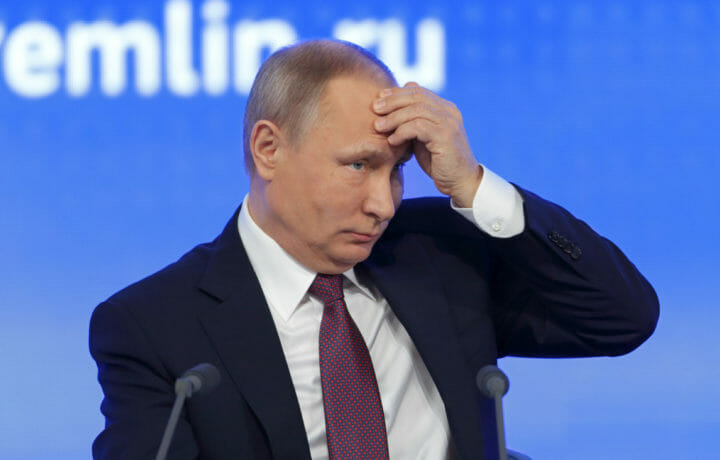According to Statista, in January of this year, a German market and consumer data specialist stated 59% of Russians trusted President Vladimir Putin. Last month, this number had increased to 78% of Russians interviewed trusting him. Similarly, 30% stated in January that that they did not trust him and only 13% did not trust him last month. Propaganda, fear, or perhaps other factors is creating newfound trust in Putin. Alas, most of the world does not share in this level of trust for the Russian President.
Last week’s agreement of allowing food exports and subsequent bombing shows the difficult environment western leaders face when dealing with Russia. One of the greatest challenges for western governments is how to deal with Russian leadership that consistently lies, even when it doesn’t need to.
Russia constantly tells the west what they want to hear, only to disappoint. They are nonstop with their attempts at disinformation. We often believe or want to believe what they are saying. This is even more confounding as our leaders and policymakers cannot simply tune out the lies that are spewing from the Kremlin.
Moscow acts as though they expect countries not to question clear deception. These lies have been incessant during the past decade, with Russia deflecting its role in destroying Malaysian Airlines Flight MH17 over Ukraine and the annexation of the Crimean Peninsula in 2014. In 2018, Russia denied the poisoning of former Russian military intelligence officer Sergei Skripal and his daughter in the UK and the attempted assassination of opposition leader Alexei Navalny in 2020.
The west sees through the lies about Ukrainian grain exports. No more than 24 hours after the Russian and Ukrainian grain deal was signed in Istanbul, Russia bombed the Ukrainian port of Odessa. World leaders condemned the attack with Ukrainian President Zelensky stating it was an example of “Russian Barbarism”. The Russian Ministry of Defense quickly confirmed the strikes, stating that their missiles hit military infrastructure and arms stockpiles and crippled a Ukrainian Naval repair facility. The same report unapologetically stated the attack came a day after signing mutually beneficial grain export deal. In addition to the safe passage of grain, the signed agreement included no attacks of port facilities, merchant vessels or civilian ships used to transport grain.
With numerous lies within lies about the Russian gas flow into Germany, Putin has publicly blamed Canada for the problem with the Nord Stream 1, stating it will now have no choice but to turn it off for more repairs. Putin and Gazprom declared elaborate technical problems, claiming one of the turbines was “corroded” on the inside, hinting at other difficulties, such as still needing documentation from Siemens Energy Canada to reinstall the turbine. Once again, few believe the rhetoric is true.
The nuclear missiles threat is a recurring issue that Putin and his leadership continue to use. Why? Not dissimilar to the food and fuel uncertainties created by Russia, leverage is gained through creating insecurity through the “possible use”, rather than in the actual employment of nuclear weapons. Even though the use of nuclear weapons would be devastating, once used, Putin’s ability to threaten the west is gone. By holding off and threatening use, pressure is maintained indefinitely on the west.
As the Whac-A-Mole game with Moscow persists, the Russian government continues spreading disinformation about its unjustified war. Global food insecurity, innocent lives, and numerous other challenges associated with the conflict should be enough to cause Moscow to think about the havoc.
Our State Department recognizes the problem with Secretary of State Antony Blinken recently stating, “As with its decision to start this unjustified war, responsibility for the disruption of these supplies and the suffering that it’s causing around the world lies squarely and solely with the Russian Government.”
However, Russian propaganda is rapid and continuous. Never checking facts, Moscow disseminates their interpretation of emergent events to favor their objectives. Even when the propaganda serves no purpose.




